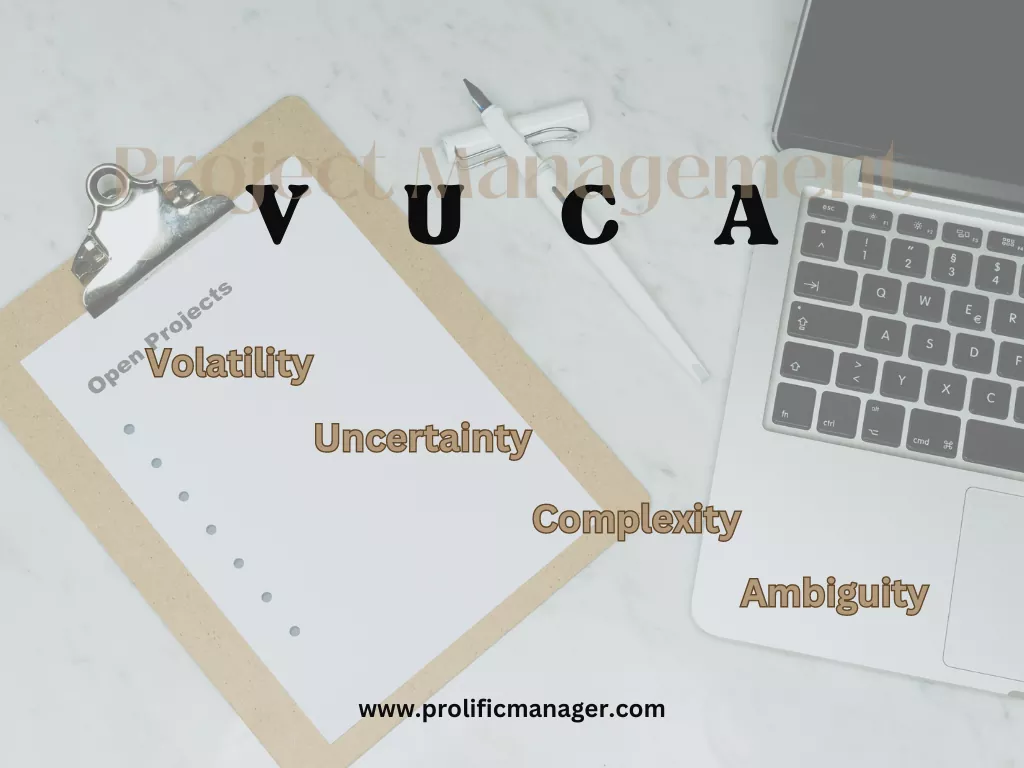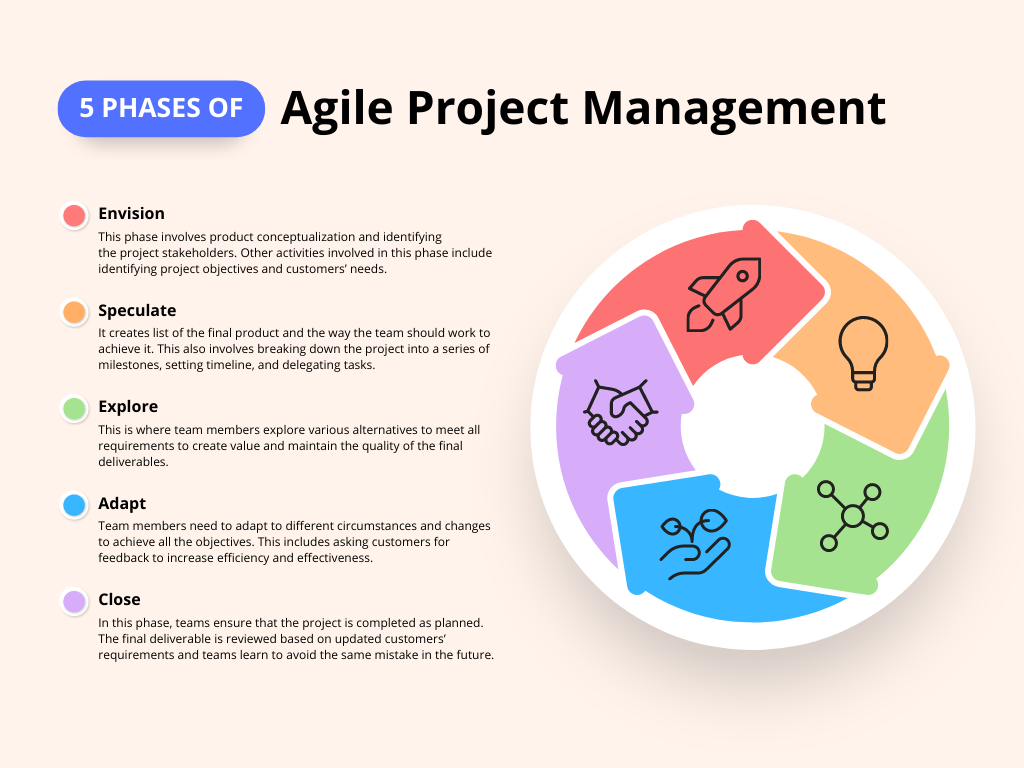Project management is a broad field. As a project manager, there’s a lot to familiarize yourself with – from the different methodologies to the seemingly endless acronyms. When speaking of acronyms, VUCA comes to mind.
VUCA? Did that ring a bell? If not, then you’re on the right webpage. Here, you’ll discover the meaning of VUCA in project management.
What does VUCA Stand for?

- V – Volatility
- U – Uncertainty
- C – Complexity
- A – Ambiguity
If you’re researching where the concept of VUCA originates, you’ll trace it to the military. But if that’s the case, then is VUCA even essential in project management? Yes. As a project manager, the concept of VUCA in project management is something to keep in mind. And Since VUCA is an acronym, let’s see how each letter applies to the project management industry.
Understanding VUCA in Project Management
1. Volatility
Volatility is the tendency to change rapidly and unpredictably. The concept of volatility applies to several industries even down to our daily lives. In the project management industry, it’s clear to see how volatility applies.
Not every project goes according to plan. And that’s because there are several volatile factors associated with a project. These factors may range from technological advancements to market changes. It may even result from the lack of sufficient resources.
Each of these factors has the potential to affect the outcome and goal of the project. A skilled project manager is aware that even the project itself may be volatile at times and prepares to handle such situations. Yes, flexibility is the quality needed to face the volatile nature of a project.
2. Uncertainty
Uncertainty refers to the doubt about a project’s outcome. A project manager should be able to predict the final results of a project from the information provided at the beginning of the project. As common as that notion may sound, it’s near impossible.
Like the volatility above, several factors make an expected result unreliable. It contributes to the doubt the manager and team face about the project at hand. One factor that especially adds to a project’s uncertainty is the lack of sufficient information.
Even if the information is sufficient, the volatile factors above still contribute to uncertainty. Whether you’re predicting the outcome via past project analysis or not, uncertainty is still present. And that’s because you can’t tell if, where, or when you’ll face a challenge. However, flexibility and risk management can help you overcome this VUCA element.
3. Complexity
Complexity is a project’s state of being difficult to understand, predict, and even execute. What factors make a project overly complex? Some include the project’s size, duration, and number of stakeholders involved.
In addition, multiple interdependent components add to the complexity of a project. To overcome this, you’ll need to fully understand the project. Having a good understanding of the project will help you to identify the required tasks and their relation with each other.
4. Ambiguity
Ambiguity is the presence of multiple interpretations of a subject. So, when speaking of VUCA in project management, what does that mean?
Ambiguity refers to a project’s state of being unclear. Hence, there are multiple interpretations of the project’s goals, tasks, and info. But why would that even happen in the first place? Well, several factors can contribute. One is the lack of sufficient information.
If the project details are not clear enough, it may affect how members and other stakeholders view the project. An ambiguous project is also uncertain and may even be complex. In a sense, this is the most dangerous situation of the four VUCA components.
That’s because members may not agree with each other ultimately leading to project failure. To tackle this, you’ll need good communication with team members and clients to determine how to execute the said project.
Remember VUCA in Project Management

Volatility, Uncertainty, Complexity, and Ambiguity. These four project qualities are closely related. And the person who has to tackle them is the project manager. You’ll also need to carry your team members along when dealing with situations discussed in this article.
Remember, a successful project is one that meets all intended goals. That’s why you should familiarize yourself with VUCA as it can affect your project’s success.







